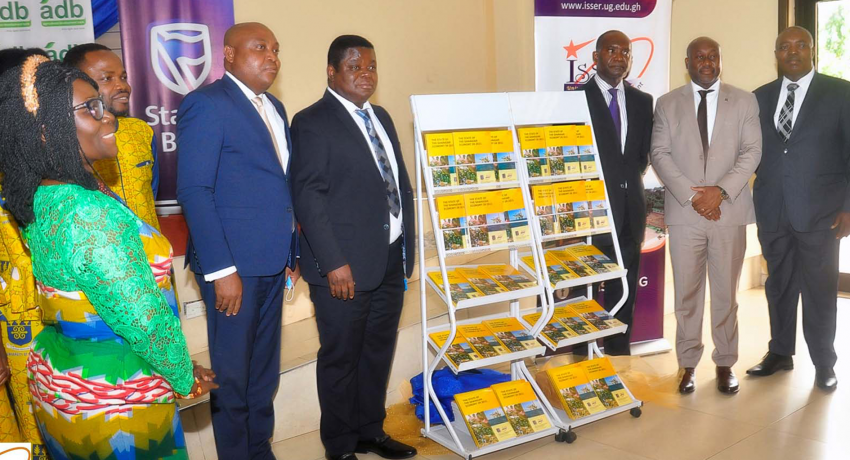ISSER launches SGER 2021, makes recommendations for IMF negotiations and 2023 budget
Mr. Armah Mensah, Prof. Quartey, Prof. Ofori, Prof. Awandare and Prof. Robert Darko Osei (Dean, Graduate School and ISSER Senior Member) in a pose after launching the report. With them, far left, are some senior members of ISSER.
The Institute of Statistical Social and Economic Research (ISSER) has launched the State of the Ghanaian Economy Report (SGER) 2021, the 31st edition of its flagship annual report on the economy of Ghana.
The report was launched by Mr. Edward Armah-Mensah, General Manager of Business, Agricultural Development Bank (ADB) Ghana, who represented Dr. John Kofi Mensah, Managing Director of ADB. He was assisted by Prof. Peter Quartey, ISSER Director; Prof. Gordon Awandare, Pro-Vice Chancellor, Academic and Student Affairs, University of Ghana (UG); Prof. Daniel Frimpong Ofori, Provost, College of Humanities, UG; and Dr. Isaac Osei-Akoto, Head of Economics Division, ISSER and Coordinator of SGER 2021.
In a statement read on his behalf by Mr. Armah Mensah, the ADB Managing Director expressed appreciation to ISSER for organizing the SGER launch each year, noting “this is an excellent opportunity for all stakeholders from different parts of the Ghanaian society to cross-pollinate ideas on our economy.”
Prof. Quartey gave a three-part presentation that covered the state of Ghana’s economy in 2021, a review of quarter three 2022 economic performance, and Ghana’s IMF journey, with each part concluding with key policy messages and recommendations.
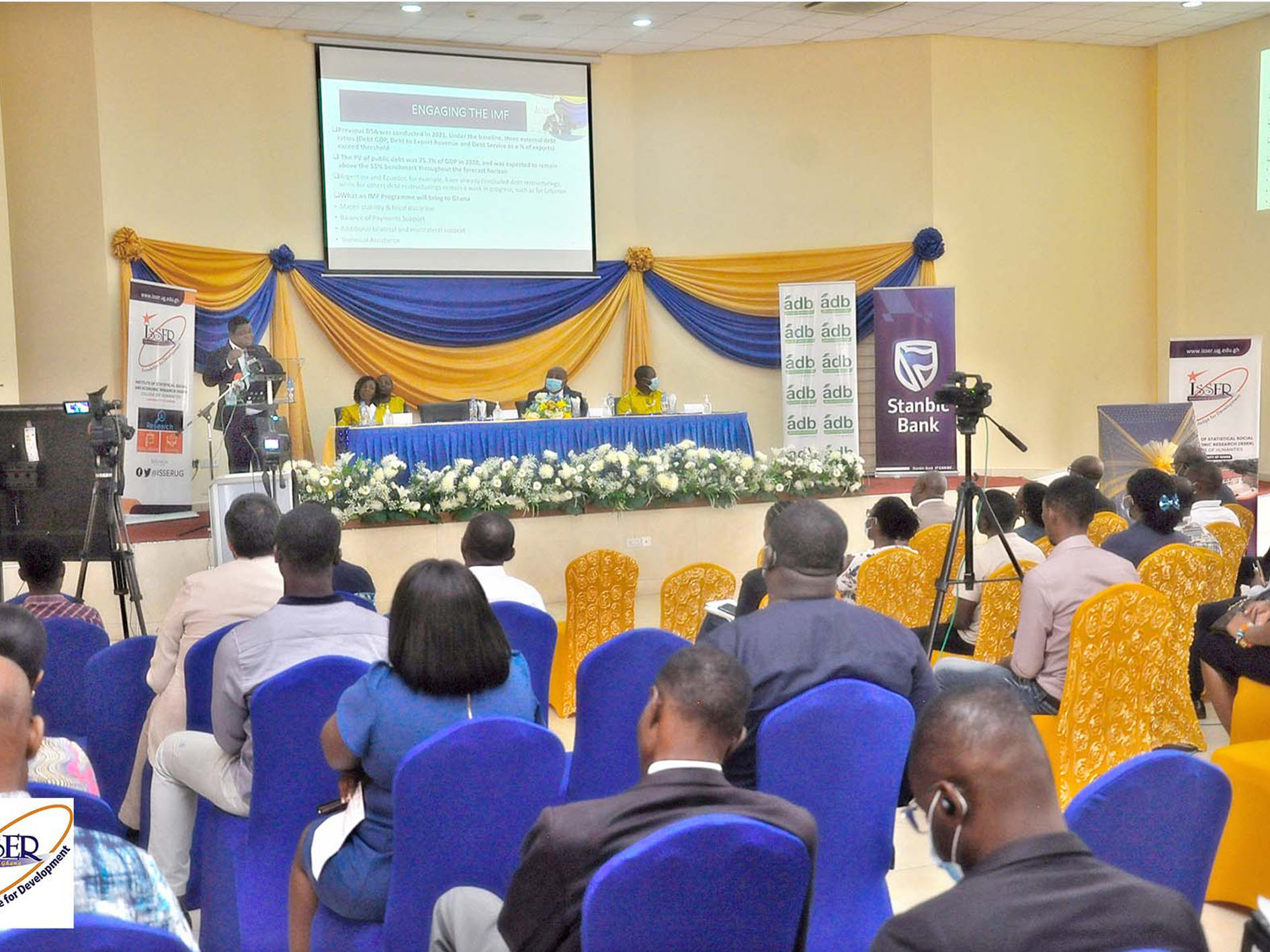
In brief remarks ahead of the main presentation, Prof. Quartey highlighted that the timing of the event -- which coincided with government negotiations with the International Monetary Fund (IMF) and preparation of the 2023 budget statement -- will enable ISSER to feed into ongoing discussions on how current economic challenges can be addressed.
He revealed that ISSER, having been consulted, has already made inputs into the budget statement and the IMF programme. “So, we [ISSER] continue to be relevant,” he said.
Prof. Quartey acknowledged the contribution of the authors, ISSER staff, and the support of ADB and Stanbic Bank which ensures the continued production of the SGER.
The ensuing presentation was thought-provoking, spurring a lively question-and-answer session where participants got to interact and pose questions to the presenter and the team of authors.
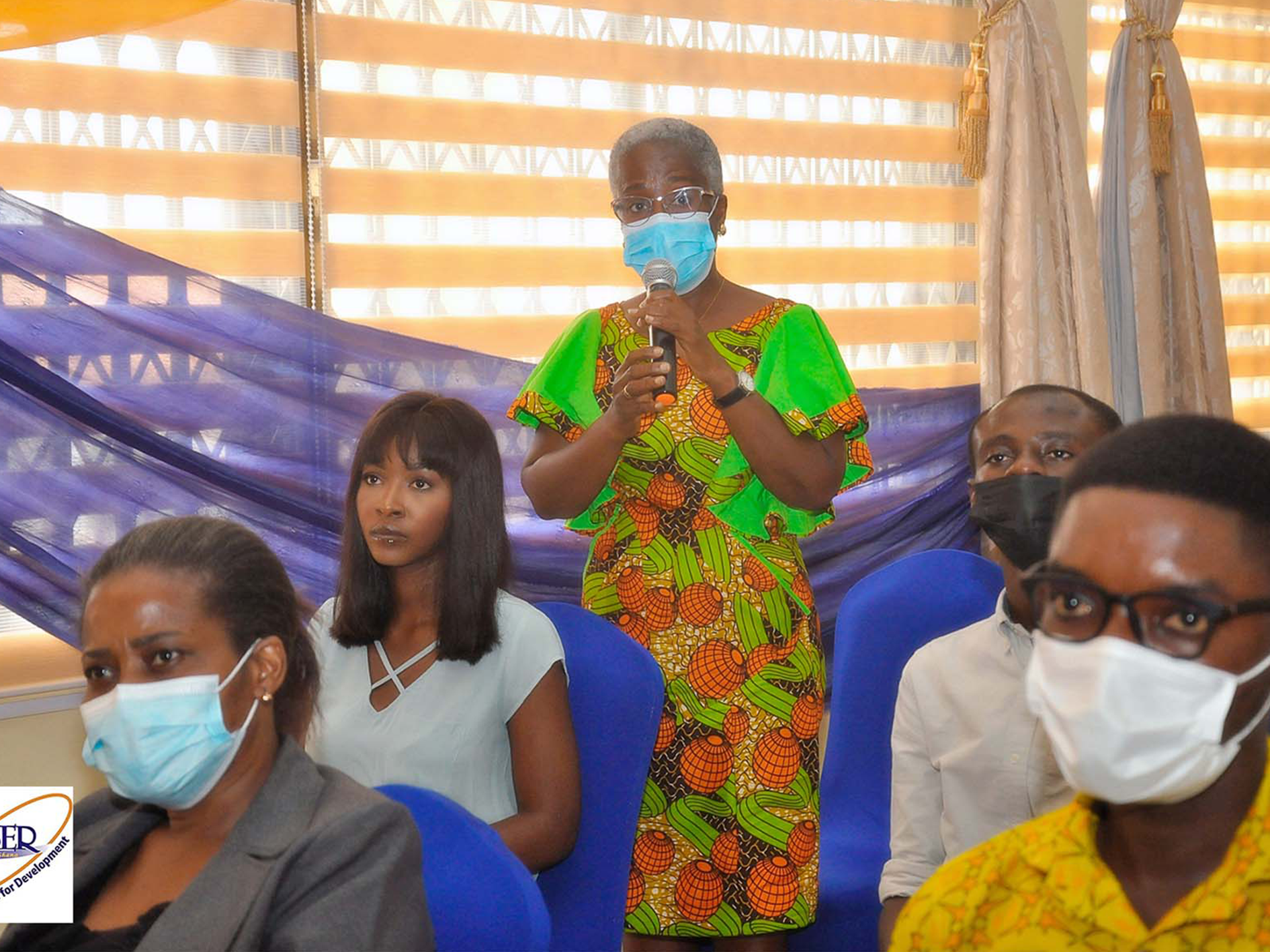
In his remarks, SGER 2021 coordinator Dr. Osei-Akoto outlined the structure of the eight-chapter SGER. Chapter one, the overview, discusses global economic developments and Ghana’s economic performance; chapter two considers fiscal developments; chapter three is on monetary and financial developments, and chapter four on international trade and payments. The next three chapters, five, six, and seven focus on three key sectors, the agricultural, industrial, and service sectors respectively. The eighth chapter, called the optional chapter, is dedicated to examining a topical issue that could considerably impact people's lives and livelihoods. The optional chapter for SGER 2021 is on inequality trends in Ghana.
ISSER has consistently produced the SGER every year since 1992, with the objective to help bridge a critical information gap and provide people with a resource that can be trusted for objective, independent and authoritative analysis of the Ghanaian economy.
SGER 2021 was launched on October 26, 2022, at a colorful event that took place at the ISSER Conference Centre.
Also joining in the launch of the report were Dr. Fred Dzanku, Head of the Statistics and Survey Division of ISSER, Dr. Martha Awo, Head of the Social Division, Prof. Rev. Adobea Yaa Owusu, immediate past Head of the Social Division, and Dr. Ama Fenny, ISSER Senior Member, who moderated the discussions.
Copies of SGER 2021 (and previous editions) are available at ISSER.
Below are selected online media reports drawing on discussions at the launch.
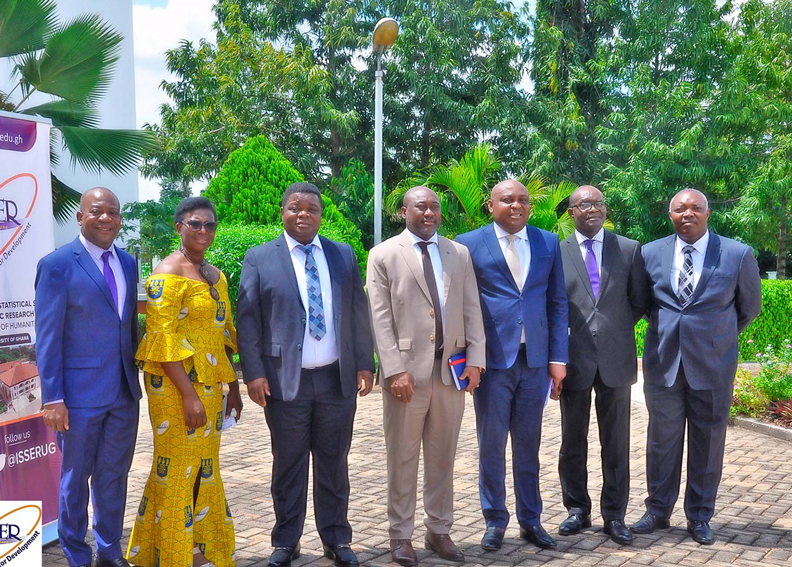
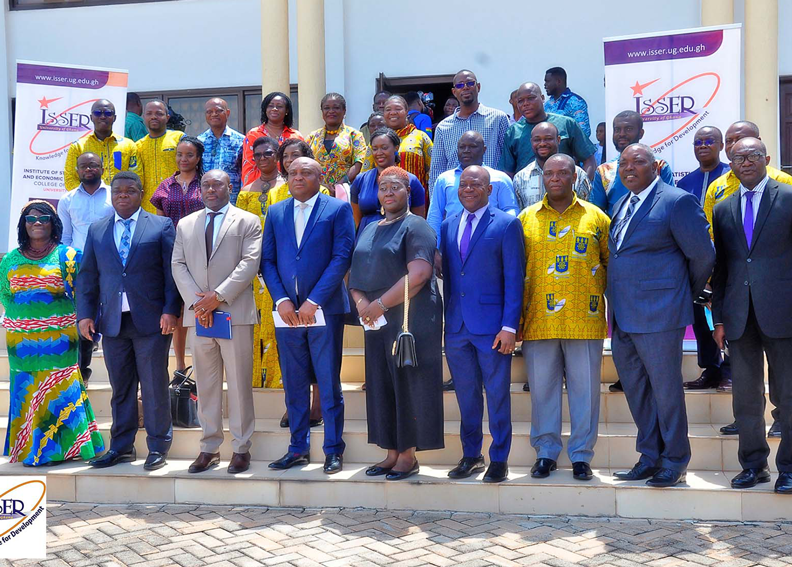
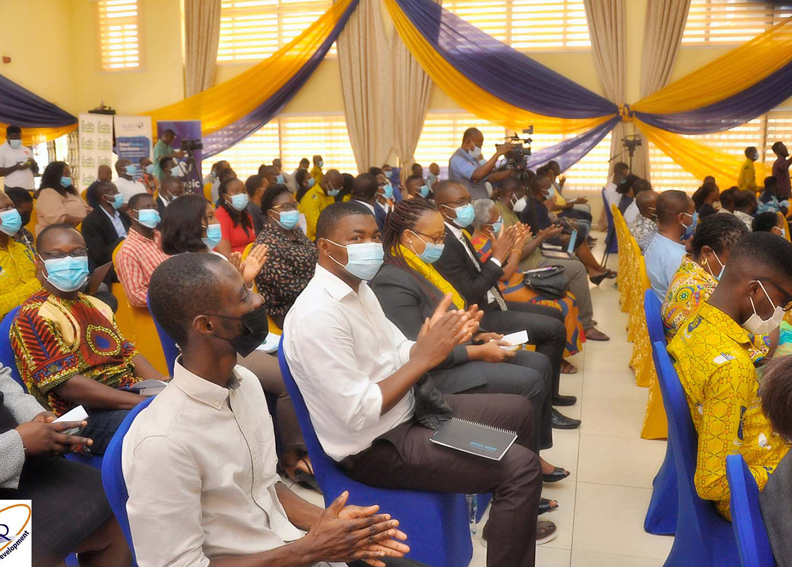
- Log in to post comments

